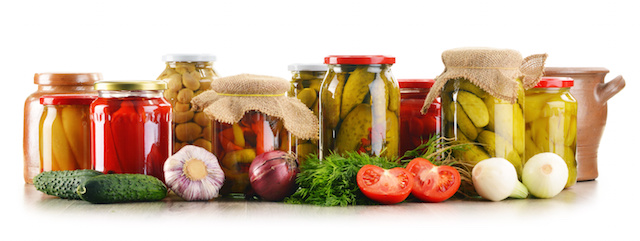
It turns out that hibernating bears offer another piece of the puzzle as to how to sustain permanent weight loss and that is—friendly bacteria. More and more studies are linking bacteria in your intestines to weight gain.
If you have the wrong type of bacteria in your intestines, you will gain weight. Likewise, if you have the right type of bacteria in your intestines, you will lose weight.
A study recently reported in the journal, Cell Reports, followed 16 brown bears. Scientists measured their bacteria and found that a brown bear, before they hibernate, will double their fat stores.
What they also found, is that before the bears hibernate, the bacteria in their intestines changes to favor weight gain. In other words, there’s more unfriendly bacteria (known as firmicutes) and less friendly bacteria (bacteriodetes).
The obvious conclusion?
When you have more of the unfriendly bacteria, you gain weight. To test their hypothesis, they took the bacteria from the intestines of brown bears before they were about to hibernate. This was injected into mice that had been bred to have no bacteria in their intestines. The result? The mice gained weight!
What Bears Can Teach Us About Weight Loss
The interesting thing is that after bears are done hibernating and they start to lose weight, the balance of bacteria shifts so that the friendly bacteria is dominant. The scientists took the intestinal bacteria from these same bears after hibernation and injected it into other mice also bred to have bacteria-free intestines. Those mice did not gain weight.
What’s more, the scientists then took the bacteria from the post hibernating bears and injected it into the mice that had gained weight in the first experiment, and those mice lost weight.
Basically, the type of bacteria in your intestines determines whether you gain or lose weight. This is important for us because most of us have unfriendly bacteria dominating our intestines!
The take-home message of this and many other studies coming out right now is that you've got to take care of your friendly bacteria.

How Do You Get More Friendly Weight Loss Bacteria?
One way is to add more fermented foods and probiotics. Digestives enzymes will also help in digestion. Also have more real foods and less processed foods. By doing that, you will change the bacteria in your intestines.
I always have probiotics in the mornings, during the day, and maybe in the evening. I have fermented veggies, like sauerkraut and kimchi, with my meals whenever I can, especially when I'm home because they are in the fridge. I'll have fermented drinks, like, coconut kefir. I'll have sprouts and juices, and I'll eat real foods, organic and biodynamic foods. And I won't wash the produce if it's live because if the produce is organic or biodynamic, it means that the soil has lots of digestive microbes will also help promote the proliferation of friendly bacteria.
With all of these different ways, I am constantly trying to increase the friendly bacteria in my intestines, as opposed to the unfriendly one that comes from eating processed foods.
By doing this, you can change your microbiome, and it is going to make it infinitely easier to lose weight. We'll talk lots more about bacteria in other articles and other blogs.
Share Your Ideas & Thoughts
What do you like to do to increase the friendly bacteria in your gut? Share your ideas and let me know your thoughts on the hibernating bears by leaving a comment below. I look forward to hearing from you.
Reference of Study


